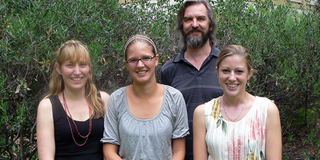
Divergence between public and expert valuation of environmental assets

Authors:
Professor Michael Burton, Dr Jonelle Cleland, Abbie McCartney, Fiona Gibson.
University of Western Australia
Main findings
Scientists play an important role in decision making by providing information and advice on technical matters. Through various institutional arrangements, such as peak advisory committees, scientists also consider issues beyond the technical. They are often asked to make value-judgements under the assumption that they reflect the interests of the wider community. This raises an important question: are expert and public values mutually consistent?
The answer is yes for conserving a given suite of environmental assets in the Ningaloo Marine Park. That is, marine scientists and the public hold similar values for conserving coral, fish-stocks, whale sharks, and turtles.
However, the answer is no for conserving environmental assets in the Ngari Capes Marine Park and the Kimberley region. Whilst there is an overall preference to choose programs that achieve an improvement in conservation, there is a divergence between the values scientists and the public place on specific components of the system. For the Capes and Kimberley case studies, experts highly value components that are considered important for system integrity and resilience (e.g. representative ecosystems), while the public have a relatively stronger preference for components with an iconic status (e.g. iconic species and iconic places such as gorges).
Knowledge factors can help to explain divergent values. In particular, a greater awareness of an area, or an improved understanding of a management scenario, is associated with converging values. In such cases, awareness campaigns to educate the public on a potential policy intervention would be highly recommended.
Further research
[back]





